
views
- Slow living means turning away from the rat race to spend more time and energy on the things you value the most.
- Start a slow living lifestyle by decluttering and cutting your consumption. Make the things you value a priority and learn how to say "no."
- Contrary to popular belief, slow living doesn't mean that you're lazy or unproductive. It's simply about living life more consciously and meaningfully.
What is slow living?
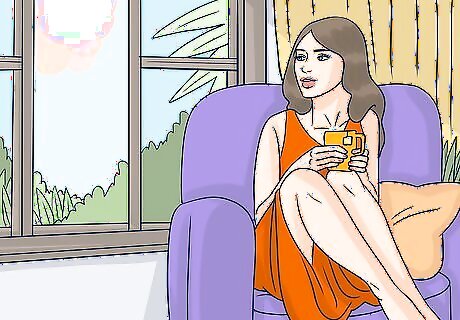
Slow living means living mindfully and consciously in the present. With slow living, you savor every experience and every moment, rather than rushing through life on autopilot. This lifestyle encourages you to focus on the things that bring meaning and purpose to your life rather than always trying to be busy and do more. The slow living movement grew out of the slow food movement, which focuses on eating fresh, local, organic food for better health and satisfaction. Slow living is closely associated with mindfulness and living with intention. When you embrace slow living, you experience every moment for what it is rather than being chaotically busy.
Starting a Slow Living Lifestyle
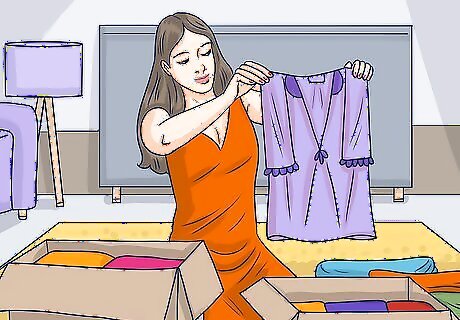
Declutter your home and workspace. Minimalism and simplicity are closely related to slow living, even though they do focus on different things. It's totally possible to have a lot of stuff and still practice a slow living lifestyle! But slow living does encourage you to think of less as being more. Taking time to declutter also means that you're respecting your home and bringing intent to your living space. Keep the things that have meaning for you and serve a purpose.

Consume only what you need and what's important to you. Focus your attention on what you want, rather than on money and on spending money. Think more about accumulating experiences rather than accumulating things. For example, you might decide that you'd rather take a trip to Bali than finance a new car when your old one is perfectly fine, or that you'd rather go to a concert than upgrade your phone.

Do only one thing at a time instead of multitasking. Multitasking drives you to distraction and makes it difficult to focus on what you're doing. If you only do one thing at a time, you'll do everything better because you're devoting your full attention to the task at hand. You might even find that you actually save time! For example, you might choose to only answer work emails twice a day. When you're working, turn your email notifications off and focus only on the work you're doing.
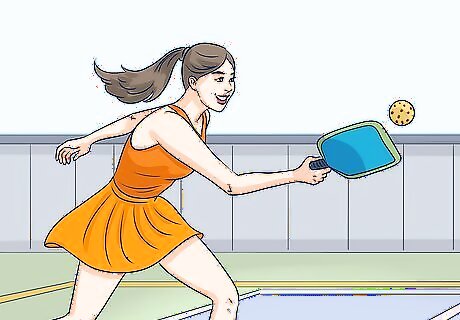
Pick up a mindful and fulfilling hobby. If there's something you've ever wanted to do, just go try it! Show up and live in the moment, embrace your inner child that just wants to come out and play. For example, if you've always wanted to learn how to play pickleball, you might go out and take a lesson or call up some friends who play and ask if you can go with them. Art and writing are other good hobbies to pick up that you can practice mindfully. Painting can be very calming, even if you don't produce a masterpiece.

Learn how to say "no" rather than getting overbooked. This can be a tough one, especially if you're a people pleaser who's worried about letting people down. But the truth is, when you say "no," people are usually just fine with it! You'll be surprised how reasonable and understanding people can be when you set boundaries and refuse to do something that would stress you out or put too much on your plate. For example, you might quit helping out as much with PTA or a local community group if you don't find that work is fulfilling for you.

Prioritize the things that mean the most to you. Have the courage to speak up and do what you feel is right to do. Bridge the gap between logic and imagination and don't allow the outside world to infiltrate you and define your priorities. For example, you might decide that you would rather work part-time so that you have more time to spend with your family and friends than you did when you worked full-time.
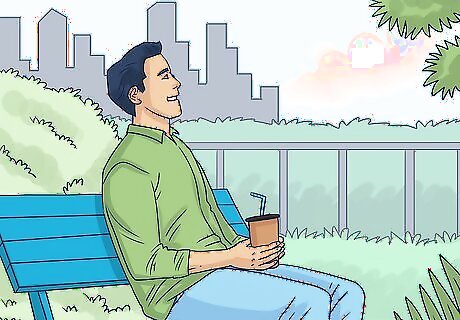
Spend time in nature to reconnect with the environment. Choose some of your favorite spots, both inside and out. These are places that nurture and refresh your soul. Spending more time in those places will help your life feel more meaningful. For example, if there's a park down the street from you that you love, make an effort to spend some time there every day, even if it's only for 15 minutes. Indoor places, such as libraries and museums, can also be a fulfilling way to reconnect with yourself and the world around you.
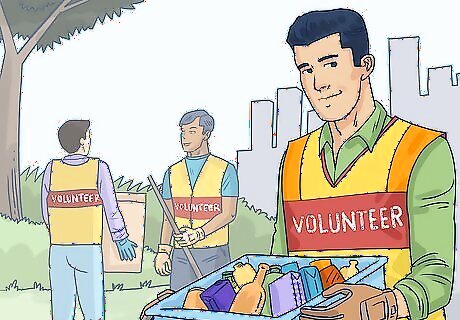
Volunteer in your community to build sustainable connections. Community involvement is a big part of the slow living lifestyle. Many people are so busy with work and other commitments that they don't take the time to nurture connections with the people in their neighborhood. But building a strong community around you is a big part of living a meaningful and fulfilled life! So take the time to chat with your neighbors and work on community events that will help foster more closeness among you. For example, you might organize a block party so that you and your neighbors can socialize and get to know each other better.

Develop small habits gradually over time. Simple tweaks can change everything for you and small habits are easy to implement. Starting a slow living lifestyle doesn't mean that you're suddenly going to quit your job and move out into the country—it just means that you're going to start doing more of the things you actually enjoy doing. For example, if you like to watch the sunrise every morning, you might schedule a few days a week where you get up early just to watch the sunrise and meditate for a few moments. If you want to read more, you might try listening to an audiobook while you're commuting to work instead of listening to music.
Misconceptions about Slow Living

Slow living means doing things as slowly as possible. It's not so much about doing things as slowly as possible as it is about taking time to savor each moment. In some contexts, this does translate to doing things more slowly than before, but in others, the speed at which you do things is not that big of a deal. For example, you might chew more slowly to give yourself a chance to really savor the flavor and texture of the food you're eating rather than cramming it into your mouth while walking back to the office. If you're a fast typist, for example, you don't have to slow down your typing speed as part of your slow living lifestyle! What slow living means, instead, is that when you're typing something, that's all you're doing.
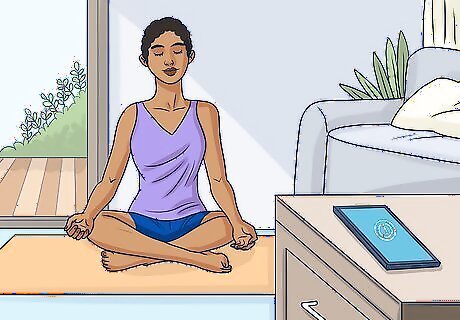
Slow living is anti-technology. Slow living isn't so much about not using any tech devices at all. Rather, it's about using tech devices in a way that enhances your life rather than distracts you from life. Tech devices are tools to serve you—not the other way around. Use them consciously and purposefully. For example, you might turn your phone off or put it in a drawer out of sight for an hour each day so you can meditate, do yoga, or read a book.
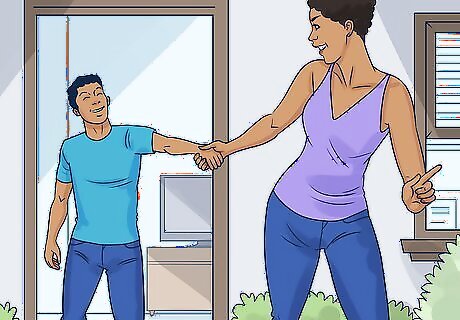
Slow living means you can't do as many things. You might find that you don't do as many things as you did before once you start a slow living lifestyle, but it doesn't necessarily mean that you can't do all the things you want to do. With slow living, you focus on the things that you find fulfilling and meaningful and do less of the things that don't enhance the meaning of your life. For example, you might choose to go to the park with your family in the evening instead of watching TV after dinner. You're really just exchanging one thing for another, so it's not as though you're doing less—you're just doing something more fulfilling.

Slow living means you have to live out in the country. It might seem easier to take on a slow living lifestyle in a rural area where things are already going at a slower pace, but it's not necessary. You can live a slow living lifestyle in a city or town as well. Slow living doesn't mean you have to quit your job either! Slow living isn't against success and you can still live an urban professional lifestyle while practicing slow living.

Slow living is the same as simple living. While slow living and simple living are closely related concepts, they aren't exactly the same thing. Simple living focuses on living your life with less stuff and making the most out of the simple things. Slow living, on the other hand, is more about your mindset as you're doing things and where your focus lies. For example, simple living might involve cleaning out your closet and removing anything you haven't worn in the past year. Slow living would dictate that you choose the pieces in your closet with intention and only keep things that have meaning for you.
Benefits of Slow Living

Reduce your environmental impact. Perhaps the biggest benefit of the slow living lifestyle is that it allows you to reduce your carbon footprint and be less damaging to the environment. Because you're consuming less and living with intention, you're creating less waste. Spending more time out in nature also helps reduce your environmental impact because you're going out to enjoy and appreciate all the beauty nature has to offer. This makes you less inclined to want to mess it up. You might also participate in clean-up events in which you pick up trash from a street, park, or beach near you. These events allow you to improve the environment while also giving your life more meaning.

Build stronger relationships. When you slow down, you have the opportunity to invest more time and effort into your relationships with the people around you. This helps you build deeper connections that add meaning to your life. Focus on the people you feel closest to and concentrate on spending more time talking to those people and relating to them on a personal level. Tell your friends and family about your decision to start a slow living lifestyle so you can lean on them for help and support as you start this journey.
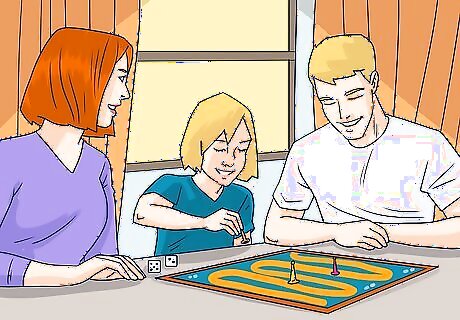
Enjoy more time to do the things you value most. Slow living helps you prioritize what's important to you so you can get more meaning out of life by doing things that enrich your soul. When you spend more time doing those things, you'll automatically feel happier and calmer. For example, you might spend time with your family playing a board game rather than mindlessly watching television.
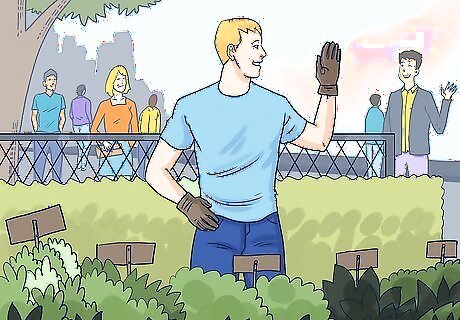
Become more connected with your community. When you make connections in your community, you feel a greater sense of belonging. You'll also feel mutually responsible as everyone works more to care for the areas where they live and work. For example, you might start a community garden to bring fresh produce to your neighborhood.
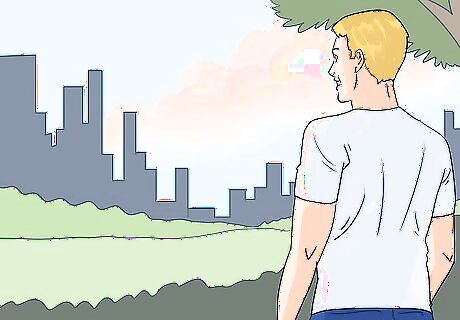
Find purpose and fulfillment in your life. This is what slow living is ultimately all about—living a conscious, meaningful life that enriches your mind and spirit. As you go further down the path of slow living, you'll find yourself constantly rewarded by the efforts you're making to live with intention.


















Comments
0 comment